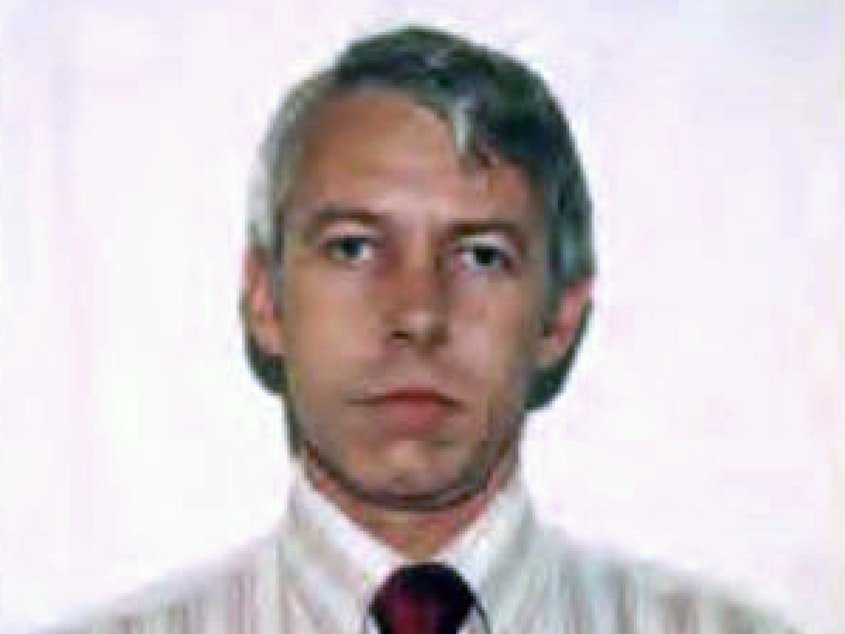Ohio State Doctor Sexually Abused At Least 177 Male Students, Investigation Finds

For nearly two decades, a doctor at The Ohio State University sexually abused at least 177 male students, according to an exhaustive independent investigation commissioned by the university. Most of the doctor's abuse happened under the auspices of providing the students with medical treatment.
Richard Strauss worked at OSU from September 1978 through March 1998, primarily as a doctor with the Athletic Department and the Student Health Center. The investigation found that university personnel became aware of Strauss' abuse as early as 1979.
However, "despite the persistence, seriousness, and regularity of such complaints, no meaningful action was taken by the University to investigate such concerns until January 1996," when they were first elevated to officials beyond Student Health or the Athletics Department, the report reads.
As a result, Strauss was suspended from working as a treating physician at OSU. The school eventually removed him from his departments, but it kept him on as a tenured faculty member. He voluntarily retired in 1998 with "emeritus" status from the university. Strauss took his own life in 2005.
"The findings are shocking and painful to comprehend," current OSU President Michael Drake said in a message emailed to the OSU community.
Sponsored
"On behalf of the university, we offer our profound regret and sincere apologies to each person who endured Strauss' abuse," said Drake, who became the school's president in 2014. "Our institution's fundamental failure at the time to prevent this abuse was unacceptable — as were the inadequate efforts to thoroughly investigate complaints raised by students and staff members."
Drake added that the university has started the process of revoking Strauss' emeritus status and "will take additional action as appropriate."
"Dreams were broken, relationships with loved ones were damaged, and the harm now carries over to our children as many of us have become so overprotective that it strains the relationship with our kids," Kent Kilgore, a survivor of Strauss' abuse, said in a statement to The Associated Press.
OSU said it launched the independent investigation last April, after a former student came forward with allegations of abuse and "indicated ... that there may have been others who experienced sexual misconduct by Strauss."
The investigation carried out by the law firm Perkins Coie was led by a former federal prosecutor and a former federal government ethics attorney. Both had experience in investigations involving male sexual abuse survivors.
Sponsored
They interviewed 520 people, among them the 177 men who said they had been abused by Strauss.
The report, which runs more than 230 pages, contains a litany of painful stories of abuse from former students who went to Strauss for medical care.
The instances of abuse often involved inappropriate touching of a students' genitals during exams in ways that weren't medically useful. A number of students said Strauss "would routinely touch their genitals at every visit, regardless of the medical ailment presented, including for a sore throat," the report states.
The report also states that members of 15 university athletic teams were abused. Strauss most frequently targeted wrestlers — 48 of them, according to the report. And the abuse often became more explicit over multiple visits.
"We observed that, in many cases, a student's most egregious experience of abuse did not occur during the student's first encounter with Strauss; rather, the abuse escalated over time, in a series of examinations with the student," the report states.
Sponsored
Other students reported that Strauss would frequently shower with teams, appearing to loiter and gawp at students as they were naked in locker rooms and making them uncomfortable.
A former soccer player told investigators that Strauss would sometimes run a single lap just as the team was finishing up practice. "The student noted that it was a commonly-held perception among the players that Strauss was exercising as a pretext to shower with the team, and the student-athletes would try to shower as quickly as possible," the report reads.
Dozens of people who worked as coaches or athletic trainers told investigators that they had been aware of rumors and complaints against Strauss. The abuse was so widely known that it left some students with the idea that it was simply accepted by other university personnel.
"Many of the students felt that Strauss' behavior was an 'open secret,' as it appeared to them that their coaches, trainers, and other team physicians were fully aware of Strauss' activities, and yet few seemed inclined to do anything to stop it," the report states. Students, it adds, said they had the impression the abuse was a form of hazing or a rite of passage.
The university took disciplinary action against Strauss only after a series of student complaints in the mid-1990s. Even after that, he opened an off-campus private men's health clinic near the university — where he continued to abuse patients — and kept his title as a tenured faculty professor.
Sponsored
As Gabe Rosenberg and Adora Namigadde of member station WOSU reported:
"At least 50 students have filed lawsuits against Ohio State, arguing the university knew about and declined to act in response to complaints about Strauss. Their case is headed to mediation.
" 'It's what we've been saying—they've failed to act—investigate or act, and now we have validation,' said Brian Garrett, one of the lead plaintiffs, in an interview Friday.
"The university has referred the report to Columbus Police, the Franklin County Prosecutor's Office, and the Ohio Attorney General's Office."
The investigators and the university's president thanked the survivors for coming forward to share their stories.
Sponsored
"This independent investigation was completed because of the strength and courage of survivors," Drake said.
Read the investigative report here: [Copyright 2019 NPR]

